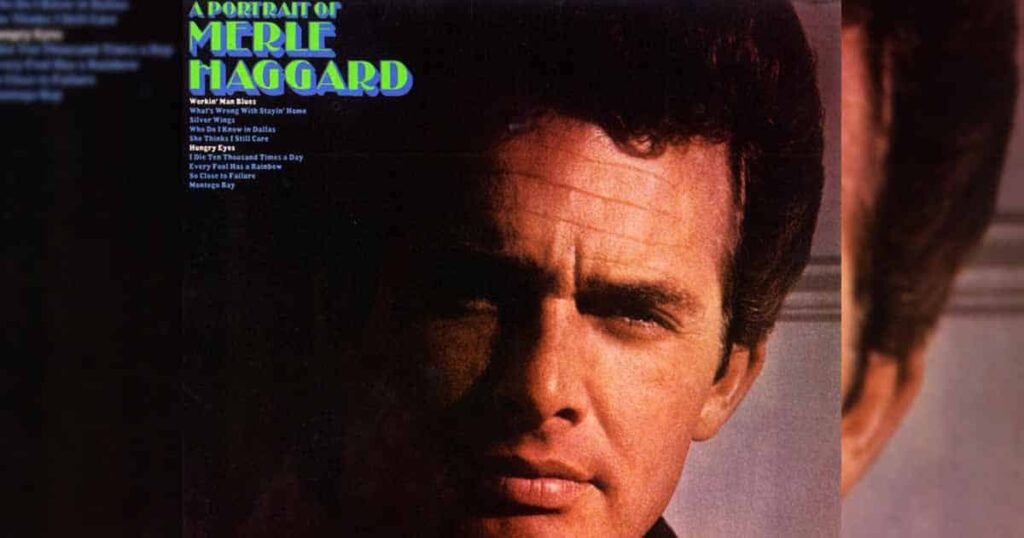
That Last Look Back: When Heartbreak Takes Flight
There are certain songs, particularly in the realm of classic country music, that don’t just tell a story, they etch themselves into the very fabric of one’s memory, often soundtracking moments of personal, profound heartache. Merle Haggard—The Hag—was a master architect of these emotional landmarks, and few are as piercingly sad and beautifully direct as “Silver Wings.” This is the kind of song that used to stop the clatter of glasses in a dimly lit honky-tonk, forcing everyone to pause and reflect on their own lost loves. It is pure, unadulterated Bakersfield Sound melancholy.
The history of “Silver Wings” is deeply tied to one of the most creatively fertile periods in Merle Haggard‘s career. It was released in 1969 on his landmark album, A Portrait of Merle Haggard, though the album is perhaps best remembered for its hugely controversial and successful title track, “Okie from Muskogee.” While Silver Wings was not originally released as a commercial single, and therefore did not register a formal chart position at the time of the album’s debut, it quickly became an undeniable centerpiece of his live shows and a standard in his body of work. For the fans who played that record until the grooves wore thin, this track was the album’s aching heart. Its enduring popularity ensured it became a de facto classic, later appearing on countless compilations and live albums.
The story behind the song’s creation is a beautiful piece of artistic inspiration. Merle Haggard was known for writing from a place of raw, immediate experience, and “Silver Wings” was no exception. He reportedly wrote the song while flying in a Boeing 707 out of Phoenix, Arizona, looking out the window as the sun caught the gleaming metal of the plane’s wings. It was a simple, stark visual—those silver wings shining in the sunlight—that instantly translated into a perfect metaphor for the departure of a lover. This was around the time he was traveling frequently with his then-wife and musical collaborator, Bonnie Owens, yet the song channels a universal, devastating loneliness, a feeling that any traveler, or anyone left behind, can recognize.
The meaning of “Silver Wings” is heartbreakingly clear: it is about the moment of final, absolute separation. The narrator is not just saying goodbye; he is watching his whole world literally ascend and fly away. The roaring engines are taking the love of his life somewhere far away, leaving him utterly abandoned. The genius of the song lies in its focus on the plane itself as the agent of sorrow. The aircraft, with its metallic, indifferent beauty, becomes the cold, mechanical barrier between two souls. The lyrics, “Silver wings slowly fading out of sight,” encapsulate the slow, painful realization that this departure is permanent, that the memory of the relationship is now receding, just like the plane on the horizon. For listeners of a certain age, who can recall a time when air travel felt less commonplace and far more dramatic, the imagery is powerful. It evokes that heavy, desolate feeling of standing alone at a chain-link fence at the airport, long after the loved one has passed through the security door. This track, with its slow waltz rhythm and the mournful steel guitar weeping over the steady beat, is a timeless hymn to loss, securing Merle Haggard’s legacy not just as a defiant Okie poet, but as one of country music’s most sensitive chroniclers of the human heart.